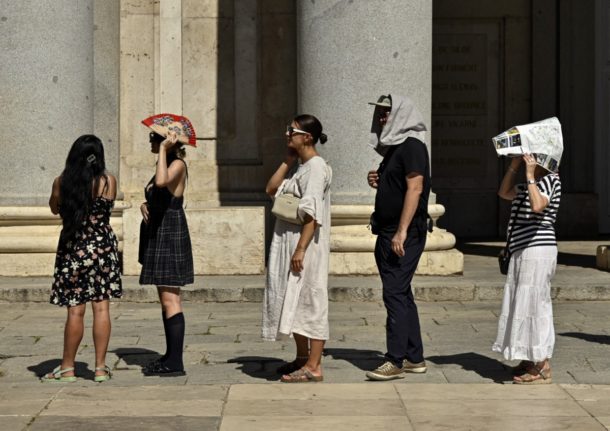The Spanish population increased by almost 1000 people per day to start off the year, spurred almost entirely by the arrival of migrants.
Spain’s population increased by 82,346 people during the first quarter of 2024, a rate of a little over 900 per day on average, meaning that the total population reached 48,692,804 on April 1st, the highest figure in history.
This is according to population data recently released by Spain’s National Statistics Institute (INE).
In annual terms, the total estimated population growth was 459,615 people in the last year, 0.95 percent overall, a slight slowdown after six consecutive quarters with inter-annual rates above 1 percent.
READ ALSO: Older and more diverse: What Spain’s population will be like in 50 years
These figures confirm the pre-existing trend that without the influx of immigrants, Spain’s population would be decreasing. This is largely due to the combination of an ageing population and declining birth rates. By 2035, around one in four (26.0 percent) of Spaniards are expected to be 65 or older. That figure is currently just 20.1 percent of the total population, and by 2050 it could rise to 30.4 percent.
This is compounded by the fact that fertility rate figures have all but flatlined in Spain. In 2023 Spain registered just 322,075 births, reflecting “a 2.0 percent fall on the previous year”, an INE statement said, with a spokesman confirming it was the lowest figure since records began in 1941.
Spain’s fertility rate is the second lowest in the European Union, with the latest figures from Eurostat showing there were 1.19 births per woman in 2021, compared with 1.13 in Malta and 1.25 in Italy.
A recent study by the Bank of Spain estimates that the country will need up to 25 million more immigrant workers by 2053 in order to combat demographic ageing and maintain the ratio of workers to pensioners in order to support the pension system.
READ ALSO:
- Spain needs 25 million foreign workers to keep its pensions afloat
In 2023 Spain logged lowest birth rate in 8 decades
During the first quarter of the year, the native Spanish population actually decreased by 3,338 while the foreign population increased by 85,684 people.
8,915,831 people, or 18.31 percent of the total population in Spain, were born in other countries.
The main nationalities of immigrants arriving in Spain were Colombian (39,200), Moroccan (26,000) and Venezuelan (22,600). In contrast, of those who left Spain in the first three months of the year, 10,000 were Spanish, 9,900 Moroccan and 8,000 Romanian.
On a regional level, in this period the population grew in 12 regions, as well as in the autonomous city of Melilla, and decreased in five regions and Ceuta.
The largest increases were in Madrid (+0.44 percent), Melilla (+0.40) and the Valencian Community (+0.36), while the population decreased in Aragón (-0.19 percent), Extremadura (-0.12), Castilla y León (-0.06 percent), Asturias (-0.05 percent), Cantabria (-0.03 percent) and Ceuta (0.02 percent).
With regards to year-on-year increases, population increased the most in the Valencian Community (+1.79 percent), Madrid (+1.72) and the Balearic Islands (+1.62) and only decreased in Extremadura, by 0.13 percent.
READ ALSO: Nearly half of Barcelona’s residents aged 20 to 39 are foreign



 Please whitelist us to continue reading.
Please whitelist us to continue reading.
Member comments